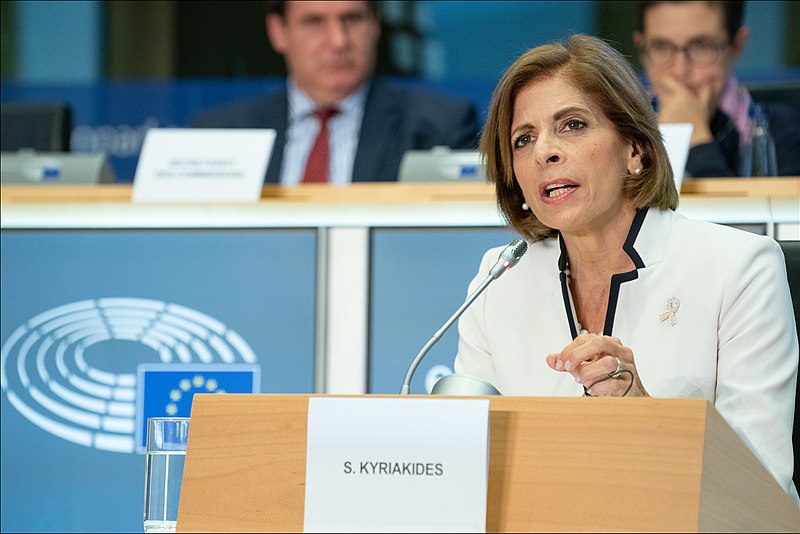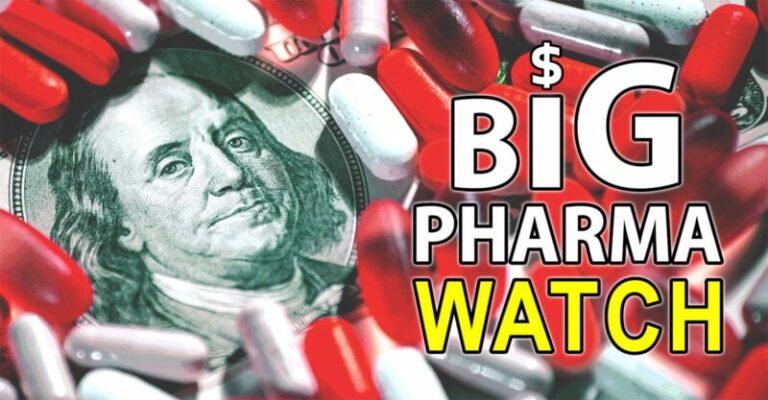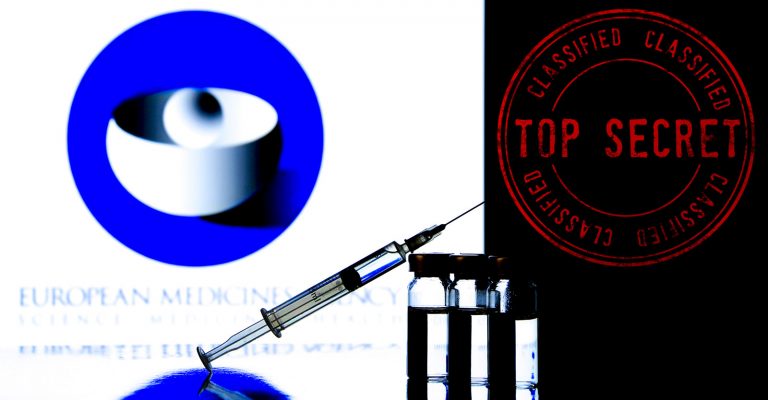mRNA: Vaccine or Gene Therapy?
mRNA: Vaccine or Gene Therapy? This is the question asked by Helene Banoun PhD, in one of her latest articles published 22 June 2023 in the International Journal of Molecular Sciences, in its special issue The Future of Drug Discovery and Development.
The question many have addressed before and fought to uncover: citizens, lawyers, scientists and a few, but vocal decision makers raised concerns tirelessly for years by now and been- when not censored – hastily thrown often politically charged demagogue answers as exhibited in the dialogue below (July 2020) instead of debate and open dialogue searching for real solutions taking the voiced concerns into account.

Ethics and safety of GMO and non-GMO vaccines against COVID-19
Priority question for written answer P-003908/2020
to the Commission
Rule 138
Michèle Rivasi (Verts/ALE)
Under the pretext of responding to the health emergency linked to COVID-19, the European Union plans to dispense with the ethical and scientific safeguards intended to guarantee the safety of vaccines under development. In order to facilitate access to vaccines, the Commission has stated that their authorisation will be based on ‘less comprehensive data than would normally be the case’ [1] . Similarly, temporary derogations are envisaged for vaccines that contain genetically modified organisms (GMOs), which will not have to provide an environmental impact assessment for the clinical trials phase and compassionate use [2] . In addition, GMO vaccines include nucleic acid vaccines (containing DNA and mRNA) and non-multiplicative viral vector vaccines which have never been approved for use in humans and are still experimental.
- 1. At a time when a number of experts are warning that derogations of this kind call into question the safety of the vaccines that will be approved, how does the Commission intend to guarantee the quality, safety and effectiveness of these vaccines, whose real effects on health are not properly understood?
- 2. Is the Commission therefore in favour of inoculating healthy volunteers with the SARS-CoV-2 virus in order to observe their reactions following the administration of a vaccine, as proposed by the on-line initiative ‘1 Day Sooner’ authorised by the World Health Organisation on 6 May 2020?

Answer given by Ms Kyriakides on behalf of the European Commission
The Commission aims to ensure a global and equitable access to diagnostics, treatments and vaccines to tackle the COVID-19 crisis. The EU Strategy for COVID-19 vaccines[1] sets out a common EU approach to secure vaccine supplies for Member States and their citizens.
While the availability of COVID-19 vaccines is urgently needed, a robust demonstration of quality, safety and efficacy of these vaccines is indispensable for public health reasons. The Commission, together with Member States and the European Medicines Agency, will ensure that these processes move as quickly as possible according to sound scientific and regulatory principles in full respect of the highest ethics standards and the values of fairness and solidarity without compromising on safety and efficacy. In case of unmet medical need, such as prevention of COVID-19, a medicine can be authorised with less comprehensive data as long as the benefit outweighs the risks, subject to the submission of additional data. Medicines are also under risk management and post authorisations monitoring.
Vaccines based on genetically modified organisms are subject to the same requirements regarding quality, safety and efficacy as other vaccines. This is not changed by the regulation on the conduct of clinical trials with and supply of medicinal products for human use containing or consisting of genetically modified organisms intended to treat or prevent coronavirus disease relating also to trials with healthy volunteers[2].
The recent article by Helene Banoun PhD highlights some of the safety regulatory failures
Banoun is a French biologist, expert in molecular and cellular pharmacology and a former research fellow at the National Institute for Health and Medical Research – INSERM – in France. Her main fields of expertise are immunology, virology and pharmacology. Today she works as an independent researcher and has written several articles that you can find on her “researchgate” page.

The title of the article is: mRNA: Vaccine or Gene Therapy? The Safety Regulatory Issues.
The aim of Banoun’s article is to compare the controls required for Gene Therapy Products (GTPs) with those actually applied to mRNA COVID-19 vaccines. The COVID-19 vaccines were exempt from a number of controls required for GTPs. The potential safety issues arising from the absence of these controls is discussed in the article.
Banoun says it is becoming urgent to shed light on this topic as manufacturers are planning to replace certain “classic” vaccines with mRNA vaccines. Sanofi is launching a clinical trial of the first mRNA-based seasonal flu vaccine. Moderna has several mRNA vaccines in clinical trials, among others against influenza, RSV, varicella, and herpes.
“Cancer” vaccines are also announced by Moderna and Merck who are partnering up in clinical trials for an anti-melanoma “vaccine” combined with a monoclonal antibody.
Accelerated approval
COVID-19 vaccines were developed and approved rapidly in response to the urgency created by the pandemic.
The COVID-19 vaccines were only subjected to the regulation of vaccines against infectious disease, not to GTP regulations. The way we think about vaccines has not changed for many years. A vaccine is an immunological drug against an infectious disease and it contains an antigen.
This is clearly not the case for mRNA vaccines. The mRNA vaccines, on the contrary, make the vaccinee produce the antigen. This makes the two types of products fundamentally different and their action within the body too.
No specific regulations existed for this new type of product at the time they were marketed. The regulatory agencies therefore adopted them as a matter of urgency. Now that the pandemic emergency has passed, it is time to consider the safety issues associated with this rapid approval.
Gene Therapy Products
The author exposes how the mode of action of COVID-19 mRNA vaccines should classify them as gene therapy products (GTPs), even if regulatory agencies excluded them from this category. In addition, some of the tests they have undergone as vaccines have produced non-compliant results in terms of purity, quality and batch homogeneity.
From the Banoun study, it becomes obvious that the wide and persistent biodistribution of mRNAs and their protein products in the body, incompletely studied due to their classification as vaccines, raises safety issues. Post-marketing studies have already shown that mRNA passes into breast milk and could have adverse effects on breast-fed babies.
In light of the serious adverse events reported in pharmacovigilance databases, the author emphasizes the need for studies into long-term expression, integration into the genome, transmission to the germline, passage into sperm, embryo/fetal and perinatal toxicity, genotoxicity and tumorigenicity.
The potential horizontal transmission (i.e., shedding) should also have been assessed thoroughly and in-depth vaccinovigilance carried out.
To conclude, a requirement for these controls would be expected for future mRNA vaccines.
It is now up to the regulatory agencies to keep up with the science and to adapt regulations around mRNA vaccines, which, as shown in the article, are nothing like traditional vaccines.
Suggest a correction







